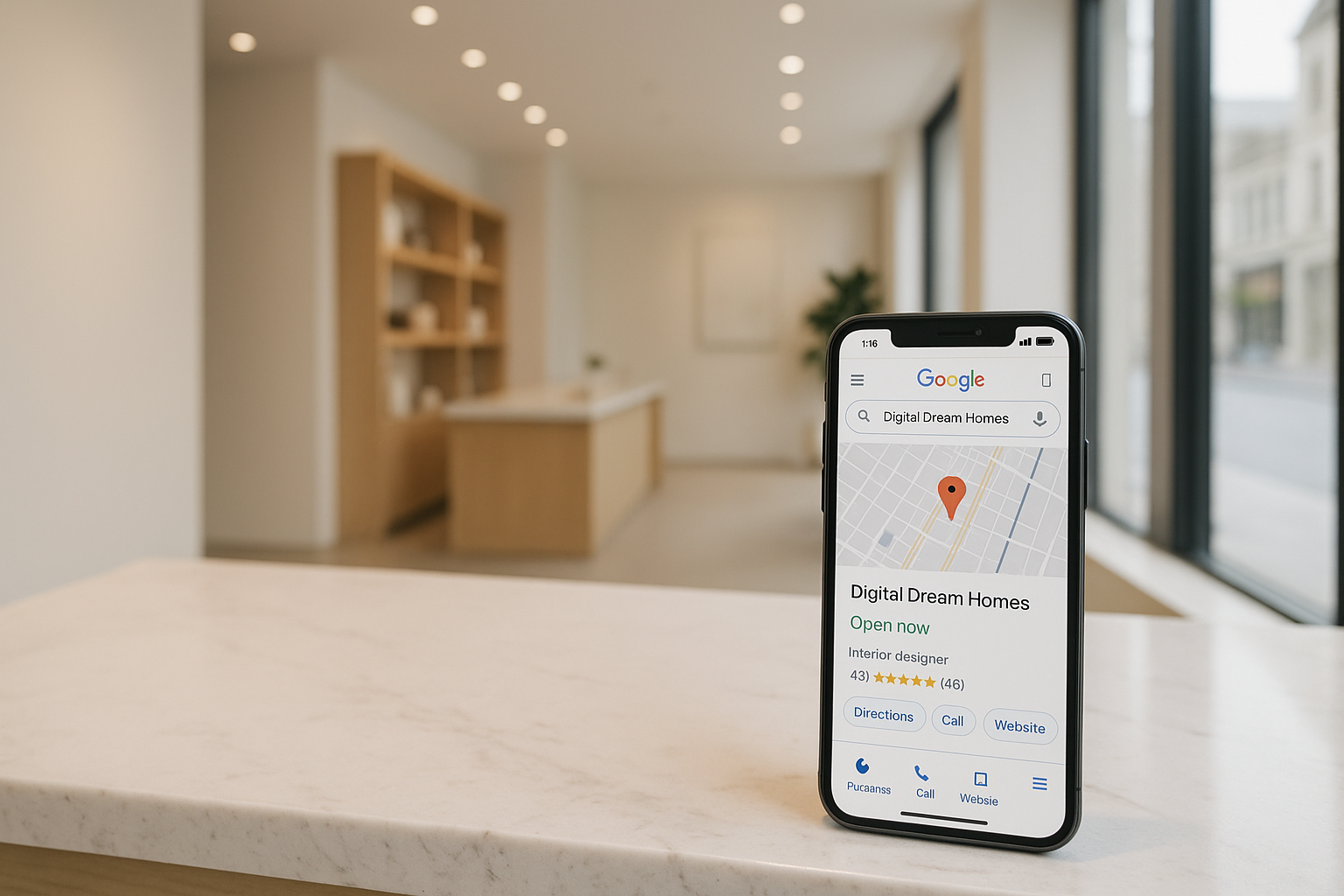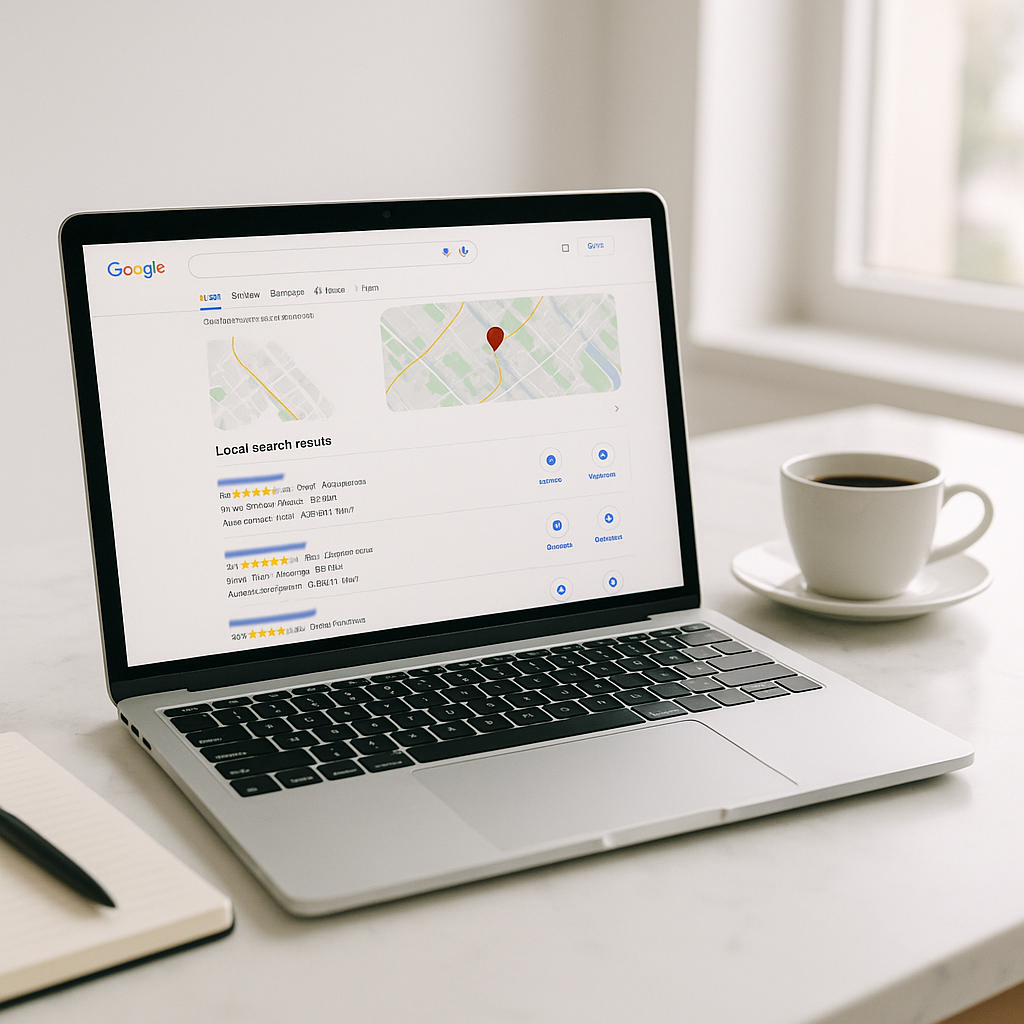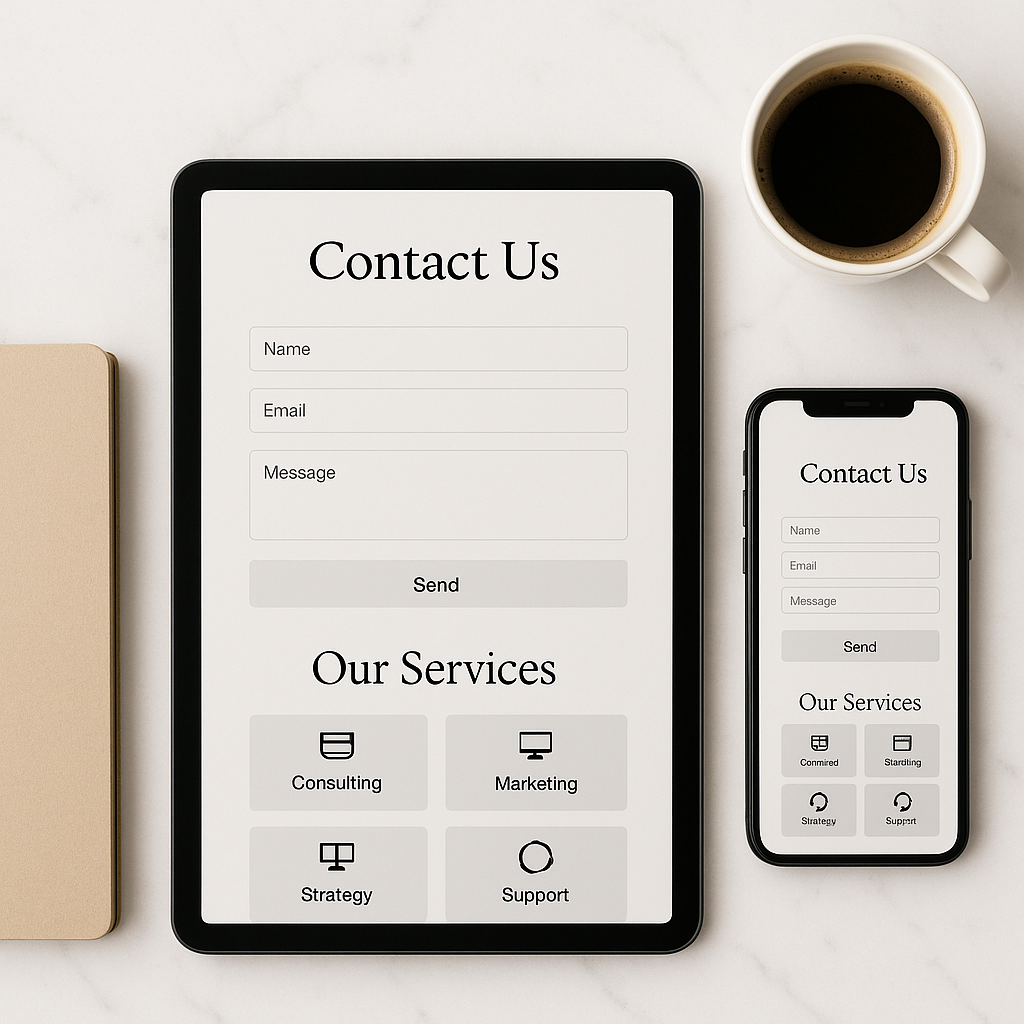Google Business Profile Optimization for Realtors: The Complete Guide

If you’re a real estate agent looking to attract more sellers and buyers in your local market, your Google Business Profile (formerly Google My Business) is one of the most powerful free tools you can use. In fact, mastering Google Business Profile optimization can make the difference between being invisible online and becoming the go-to agent in your neighborhood.
Think about it. When someone searches “realtor near me” or “best real estate agent in [your city],” where do they look? They don’t scroll through page three of search results. They click on the top three listings in the map pack, and that’s exactly where you want to be.
Let’s break down everything you need to know to dominate local searches and turn your Google Business Profile into a client-generating machine.
Why Google Business Profile Matters More Than Ever
Over 90% of real estate transactions start with an online search. Buyers and sellers are not just searching for homes; they’re also researching the agents they want to work with. Your profile is often the first impression they get.
According to BrightLocal, 68% of people contact a business directly from search results without even visiting the website first. That means your profile has to be irresistible at a glance.
Yes, having a professional website is crucial (we’ve explained this in detail in Why Your Website Matters More Than Zillow in 2025). But your Google Business Profile is like the billboard that points people toward your website. If you optimize both, you create a powerful one-two punch.
Step 1: Claim and Verify Your Profile
It sounds obvious, but many agents still haven’t claimed their profile or fully verified it. Here’s how:
Go to Google Maps and search your name or business name.
If it exists, claim it. If not, create a new one.
Complete the verification process (mail, phone, or email).
Without verification, you can’t control how you show up in search results. And if you don’t claim your profile, someone else might (yes, it happens).
Step 2: Perfect Your Business Information
This is where consistency is key. Realtors often make the mistake of listing different addresses, phone numbers, or business names across platforms. Google hates inconsistency, and it hurts your rankings.
Checklist:
Business Name: Use your full name + “Realtor” or your team name.
Address: Make sure it matches your brokerage office or service area.
Phone: Use a number you actually answer. (No dead lines or call trees if you can help it.)
Website: Link directly to your personal realtor site, not just your brokerage.
Hours: Be realistic, but make sure you cover common client call times (evenings and weekends).
This also ties into what we covered in real estate website trust signals — consistency builds credibility.
Step 3: Craft a Compelling Business Description
Your business description is your mini elevator pitch. Too many realtors waste this space with generic lines like “Helping buyers and sellers in [city].”
Instead, focus on:
Who you serve: First-time buyers, luxury sellers, investors
Where you serve: Specific neighborhoods or zip codes
What makes you unique: Negotiation expertise, fast closings, luxury marketing
Example:
“I help homeowners in Austin sell their properties for top dollar in under 30 days using advanced digital marketing strategies and a proven negotiation process.”
That’s clear, specific, and shows value. It’s also aligned with the lessons from importance of a clear value proposition — clarity wins.
Step 4: Choose the Right Categories and Attributes
Your primary category should almost always be “Real Estate Agent.” But don’t stop there. Add secondary categories like:
Real Estate Consultant
Real Estate Agency
Property Management Company (if relevant)
Attributes let you highlight unique selling points. For example:
“Women-led”
“Veteran-owned”
“Free consultations”
These small details make you more relatable and approachable.

Step 5: Upload Professional Photos and Videos
Profiles with photos get 42% more requests for directions and 35% more click-throughs to websites, according to Google.
For realtors, that means showcasing:
Professional headshots
Listing photos (with client permission)
Neighborhood shots
Videos introducing yourself or showing a quick home tour
Make sure your images are optimized. If you’re unsure about sizing, check our guide on the best image sizes for real estate websites.
Pro tip: Upload new photos weekly. Fresh content signals to Google that your profile is active.
Step 6: Collect and Showcase Reviews
Reviews are the backbone of trust. Zillow and Realtor.com thrive on them, but you can own them on Google.
Here’s how to maximize your review strategy:
Ask every client for a review before you get to the closing table. Why? Because once they sign that paper. They’re pretty much in the wind. You have a 60% higher chance of getting them to review you before the transaction is done than after. Ask before and thank yourself later.
Make it easy with a direct link to your review page.
Encourage specific feedback (“She sold our home in 12 days above asking!”).
Respond to every review — even the negative ones.
Fun fact: Responding to reviews can increase customer trust by up to 30%. That’s huge in an industry built on relationships. Do not fall into the trap of saying “Thank you for your review! It was nice working with you!” ARE YOU KIDDING ME?
These people most likely just trusted you and spend a huge chunk of money on the biggest decision of their lives, you made 5-10k in commission from the deal, and the best you can say is “Thank you for the review?”
That screams laziness and does not seem personal at all to anyone reading it that doesn’t know you yet. You must stand out!
Make it personal. Make it 3 long paragraphs! Put effort into it. You attract what you are. If you’re lazy on the response or your online presence as a whole – like most realtors – you attract the wrong audience!
For more insights on conversion strategies, see our post on real estate website conversion tips.
Step 7: Post Regular Updates
Google Posts are like mini social media posts for your profile. Use them for:
New listings
Open houses
Market updates
Buyer and seller tips
Think of them as micro blog posts. They not only keep your profile fresh but also show potential clients you’re active and engaged in your market.
This works beautifully with content marketing principles we broke down in why realtors need content marketing.
Step 8: Use Q&A to Your Advantage
Most agents ignore the Q&A section, and that’s a big mistake.
You can:
Seed common questions clients ask (e.g., “What’s your commission rate?” or “Do you work with first-time buyers?”).
Answer them thoroughly with helpful, professional responses.
Monitor regularly so no one else posts misleading answers.
Pro tip: Include local keywords naturally in your answers. This helps with SEO.
Step 9: Track Insights and Analytics
Google gives you data on how people find and interact with your profile. Pay attention to:
Search queries that triggered your profile
How many people called you directly from your profile
How many requested directions
Photo views compared to competitors
These insights help you fine-tune your strategy. Pair this with website analytics (see our guide on Google Analytics setup for realtors) to get the full picture of your online performance.
Advanced Strategies to Outrank Other Realtors
If you’re serious about dominating local SEO, here are advanced tips:
Build citations on directories like Yelp, Realtor.com, and Yellow Pages with consistent NAP (Name, Address, Phone).
Get backlinks from local news outlets or community blogs.
Cross-promote your Google profile link in your email signature, newsletters, and social media.
Use UTMs on your profile link to track leads in Google Analytics.
This is where combining strategies really shines. Pairing GBP optimization with a strong ad campaign (see Facebook ads vs Google ads for realtors) creates a massive competitive edge.
Bringing It All Together
Your Google Business Profile is not just a listing. It’s your digital storefront, your trust builder, and your lead generator all in one. With the right optimization, you can rise above competitors, attract high-value clients, and establish yourself as the authority in your market.
At Digital Dream Homes, we help real estate agents like you take full advantage of tools like GBP while building luxury websites that turn visitors into leads. Combine the two, and you’ll have an unstoppable online presence.
Ready to make it happen? Book a free consultation with us today and let’s transform your online presence into a client-generating powerhouse.
Matt Pieczarka
Want a Free Website Audit?
Fill out your information below and we will send you a personal screen share video of tips on how to make your actual website better!
See How Many Closings You're Losing to Zillow!
Click Here to Use our Calculator to See How Many Clients Zillow is Taking From You Per Year!
Backlinks for Small Business Websites: Why Backlinks Matter for Local Businesses
Backlinks for Small Business Websites: Why Backlinks Matter for Local Businesses If you want more customers finding you on Google, you need backlinks for small business websites. P
On-Page SEO Checklist for Small Business Websites
On-Page SEO Checklist for Small Business Websites If you want more local customers to find you, you need an on-page SEO checklist small business owners can actually use. This guide
Google Business Profile Setup for Small Business: The Beginner’s Guide
Google Business Profile Setup for Small Business: The Beginner’s Guide If you want to show up on Google when customers nearby search, you need google business profile setup for s
Local SEO for Small Businesses: Tips for Small Business Owners
Local SEO for Small Businesses: Tips for Small Business Owners If you want to show up when nearby customers search, you need local SEO for small businesses. The good news is that m
How to Create a “Contact Us” Page That Actually Gets Results
Contact Page Optimization for Small Business: How to Create a “Contact Us” Page That Actually Gets Results If you want more calls, emails, and bookings, contact page optimizati
Mobile Friendly Website Tips For Small Business
Mobile Friendly Website Tips For Small Business: Mobile Optimization Tips for Local Business Websites If you need mobile friendly website tips for small business, you are in the ri
Why Your Website Isn’t Bringing in Leads
Why Small Business Websites Fail: Why Your Website Isn’t Bringing in Leads If you’ve ever wondered why small business websites fail, you’re not alone. Many owners invest in a
Best Website Colors For Small Business Branding
Best Website Colors For Small Business Branding: How to Choose the Right Colors for Your Brand Choosing the best website colors for small business branding is not just a design cho
Simple Website Design Tweaks That Boost Small Business Credibility
How to Make Small Business Website Look Professional: Simple Design Tweaks That Boost Small Business Credibility Want quick, high-impact ways to look trustworthy online? If you’v









